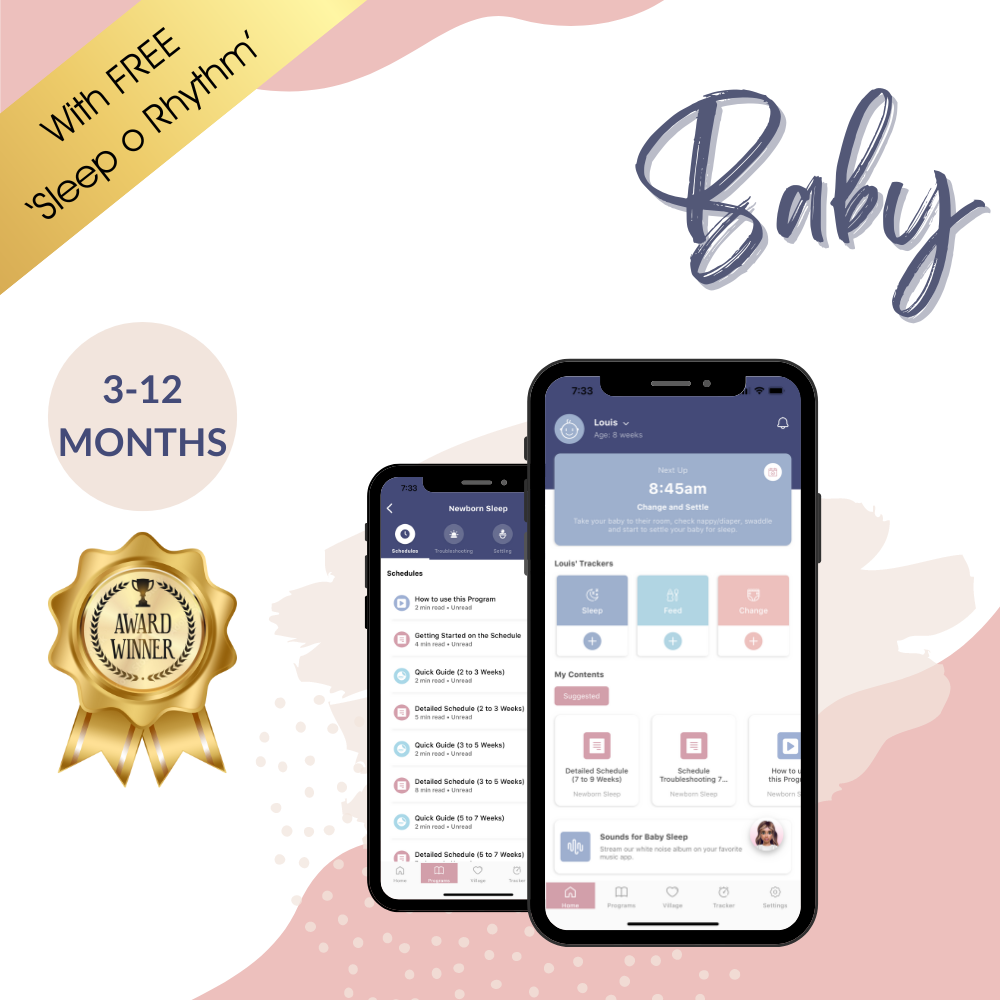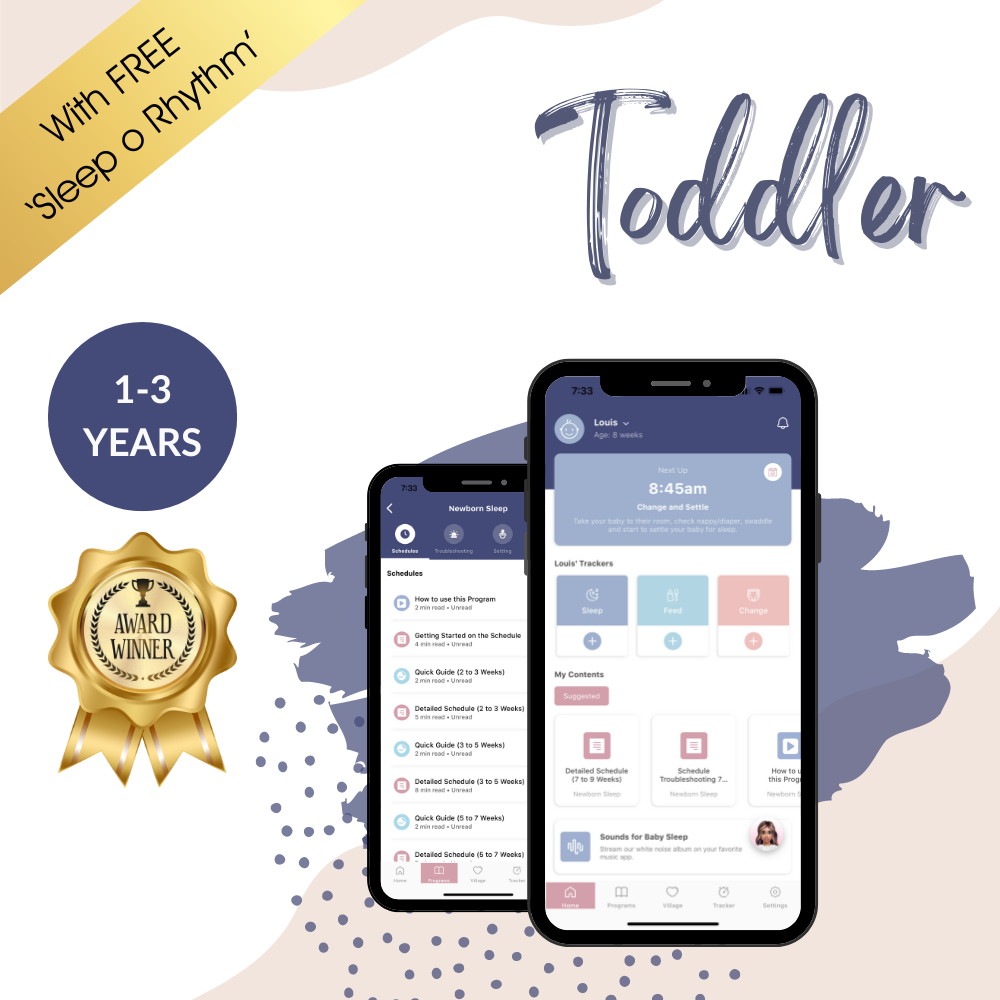
Mum Guilt: Understanding and Easing the Pressure on Mothers
During those blissful days of pregnancy, the future of parenthood all seemed like a wonderful ‘fairy-tail’. We rub our growing belly whilst daydreaming about a baby that sleeps beautifully, breastfeeding that comes naturally, and dressing our baby up in cute little outfits…
But, like most fairy-tales, motherhood didn’t necessarily pan out how we suspected. For so many, the start of motherhood is best described as an absolute reality slap. In fact, the actual process of bringing our children into the world is the first real ‘slap’. In those early days, we never knew we could feel so tired! We didn’t expect this many nappy changes. And we certainly didn’t expect to find breastfeeding so difficult or exhausting.
Yet, slowly, we do somehow get our head around the ‘sleeplessness’, the countless nappy changes, and the fact that somehow your baby only spills on their cutest outfits (and just as you’re heading out the door…)
The thing we never expected and were least of all prepared for, is the guilt that tends to insidiously follow us around as mothers. Cue: Mum guilt.
The thing that is fascinating about ‘mum guilt’ is that no mother seems to be exempt. It seems to be the one thing mums can agree on; that so many of our actions, inactions, or decision-making around our children can lead us to feel hideously guilty. In addition, unlike many aspects of motherhood it is not temporary – it seems to carry on despite what stage of parenting we are at.
The pervasiveness of mum-guilt is best understood in the ways that it can present to us in so many different forms or situations. For a start, breastfeeding. Breastfeeding, perhaps one of the more contentious topics in child-rearing, is an issue that seems to cause some of the most ‘mum-guilt’. This is particularly true in those early, more vulnerable, days of having a baby. As mentioned before, feeding our babies is something we may take for granted. Yet, the lived experience of so many is that it does not come ‘naturally’. It hurts, our milk supplies aren’t there, our baby struggles to latch, we get mastitis and so on. Yet, instead of just shrugging our shoulders and saying, ‘it wasn’t for me’, we go to great lengths to try make it work – often making the experience of feeding our baby a time of great sadness, fear, anxiety and angst. The counter of what it should be about. Why? Because of that dreaded mum-guilt of how we should be feeding and nurturing our babies.
Yes, I want more sleep!
If you need a helping hand with tackling your baby’s sleep, then check out our Pediatrician-recommended Sleep Programs.
Get our Sleep Programs
When we daydreamed about being mums, did we ever imagine we might feel ‘bored’ or perhaps ‘under-valued’ or not stimulated? I suspect not. These feelings and experiences are again, something we are ill-prepared for. However, when you honestly chat to other mothers – in fact sometimes the monotony of parenting or the sense of ‘groundhog’ day for many can feel underwhelming. They miss the stimulation of engaging the more academic side of their brain, the challenge of the workroom, or simply chatting to other adults (about things other than baby sleep). Whilst they love ‘being a mum’, the reality of cleaning baby vomit from their shirts on the daily and the struggle of settling a baby for each of their naps can make it difficult to be enthusiastic about the day ahead. Instead, finding themselves just the tiniest bit jealous as they wave their partners off as they head into the “real world”. However, instead of just acknowledging that this is a normal, and in fact, natural, way to feel – many mums feel really bad for feeling this way. Why? Again, because of mum-guilt. We beat ourselves up due to the belief that these normal and natural thoughts make us ‘horrible’ mothers.
Decision-making around “returning to work” can also exacerbate mum-guilt. For some mothers, they long to return to work quite often because it is an environment where they feel ‘expert’ (as compared to mothering which seems to be an area where they continually feel out of their depth). In turn, looking forward to working can make them feel immensely guilty – again, like they are horrible for even thinking or feeling like this. There are also instances where mums can feel guilty for even enjoying work and the relative ‘freedom’ it gives them (i.e. drinking coffee quietly and going to the bathroom on their own!). On the other hand, for some mothers, they long to stay at home with their children however their life circumstance is such that they need to work. In this instance, they feel guilty each day they wave goodbye to their children and have a sense that they are ‘failing’ them in some way. Whatever way it swings, work brings with it a sense of guilt for mothers.
Of course, mum-guilt does not just exist in these bigger issues such as breastfeeding or paid employment – we can grant ourselves access to mum guilt in most situations. We feel guilty each time we feel frustrated or yell at our kids (it particularly seems to hit when we see them sleeping at night!) We feel guilty for snapping when our kids don’t eat dinner. We feel guilty when we dare go away for a weekend with friends. We feel guilty when we may slightly put our needs first. Whatever the situation, we can find something to feel guilty about.
The reality is that, unfortunately, we will always experience some degree of mum-guilt. This is probably inevitable. However, what we can learn to do is to change our relationship to mum-guilt and reduce the way it can negatively impact us.
Like most psychology techniques, the first step is to be aware of, and acknowledge, the existence of mum-guilt. Too often, we just notice the feelings of being guilty rather than labelling it as “mum-guilt”. Often the simple process of openly expressing what is inwardly occurring, can make us feel a lot better. This is often why we feel so good when we are with friends and get to experience that “oh you feel this way too!” moment.
Say goodbye to sleepless nights.
Join over 800,000 families worldwide who are enjoying excellent sleep with our Sleep Programs, created by experts in the field of pediatric sleep.
Get our Sleep Programs
When we are aware of our mum-guilt, we are in a better position to be aware of our thoughts that give rise to this guilt. Thoughts such as “I am the worst mother…”, “It is all my fault”, “I am hopeless at settling my baby” or “I am a bad mum” are some such examples. I encourage you to really think about what thoughts you have that give rise to, or exacerbate, your mum guilt. Then, when you have these thoughts you are more likely to notice them, rather than mindlessly engage in them. When we notice our thoughts, we are then able to get separation from them. I encourage you to STOP what you are doing, taking a deep breath, and bring yourself back to the present moment. Focus on the world around you, rather than engaging in a battle with your thoughts. It can often help to use your senses such as noticing what you see and hear, as this can help pull you away from your thoughts and into the ‘now’. By doing this, you’ll be less likely to get stuck in a vicious cycle of analysing and engaging with your thoughts which will result in more mum-guilt.
In terms of your thinking style, I also encourage you to get rid of unrealistic expectations and the best way to do this is removing “should-based” statements. When we use statements such as “I should be….” we can often end up placing unrealistic expectations on ourselves. Such as “I should have lost by baby weight by now”, “I should be better at breastfeeding”, “I should be more patient with my children” and so on. When we use this type of language, we are almost always setting ourselves up for failure. I encourage you to stop using “should” and focus on what you can do. For example, if breastfeeding is not working for you, what can you do to feed your baby? If your baby is not sleeping, what can you do to settle them? If you are feeling upset or overwhelmed, instead of saying you should be happier, what can you do to manage those feelings?
In-keeping with addressing your expectations is losing the idea of being the “perfect parent”. Remember the motherhood fairy-tail I mentioned at the beginning? Recognise it was just that. Reality is far different, but that is okay. So often we spend so much time focusing on what we aren’t doing ‘perfectly’ or what has not gone well or to plan. However, shifting your focus to what you can achieve and what is going well can make a significant difference to your wellbeing, and reduce the likelihood for mum-guilt. When we strive for perfection and focus on the negative, we lose sight of what we are doing well, how our babies and children are thriving, and how their basic needs are well and truly met.
When considering parenting expectations, I also encourage you to consider what information you are digesting about parenting. For example, what books you are reading, what Instagram accounts you are following and what online articles you are reading. Remember that when we consume information, or go online, these experiences should always be uplifting, inspiring and comforting. If they are anything other than this, really consider what purpose they are serving in your life and how they may very well be contributing to your mum-guilt.
Finally, I encourage you to remember the big picture. The big picture being what is most important to you in life, and as a mother. What I am referring to here are your life values.
Let's get your little one's sleep sorted ASAP!Our award-winning Sleep Programs will solve your baby's sleep challenges in no time.
Get our Sleep Programs
I like the idea of seeing our values as our life compass in that our values direct the way we continually want to live our lives. The qualities we want to live by, and the person we truly want to be. When we are in touch with our values, this makes decision-making considerably easier, and mum-guilt far less likely. As an example, if one of your values is ‘kindness’ use this value to direct how you may choose to feed your baby. If you are someone who struggles with breastfeeding, is battling against it and dreading feeding your baby showing or living by this value? Is it kind to berate yourself for struggling to breastfeed? Similarly, if you tell one of your children off for hurting their sibling – and perhaps ban them from a special activity, when the mum-guilt creeps in, remind yourself that you are teaching your child the value of ‘caring’ or ‘respect’. If you value ‘hard work’ or ‘discipline’ you may need to remind yourself of these values as you drop your children to day-care, and that you may be instilling such values in them also.
The point here is that when we focus on the small detail – such as feeling bad for telling our children off – we miss the big picture, the overall values we are instilling in our children, and how we are wanting to live our life.
Mothering perhaps is not quite the fairy-tail we dreamed it might be. However, by managing some of the conflicting emotions that come with this life-role, such as ‘mum-guilt’, we can significantly increase the joy we get from raising these little people. Be kind to yourself, pat yourself on the back, and remember – if your children are loved, nurtured, and cared for – there is simply nothing to feel guilty about.





